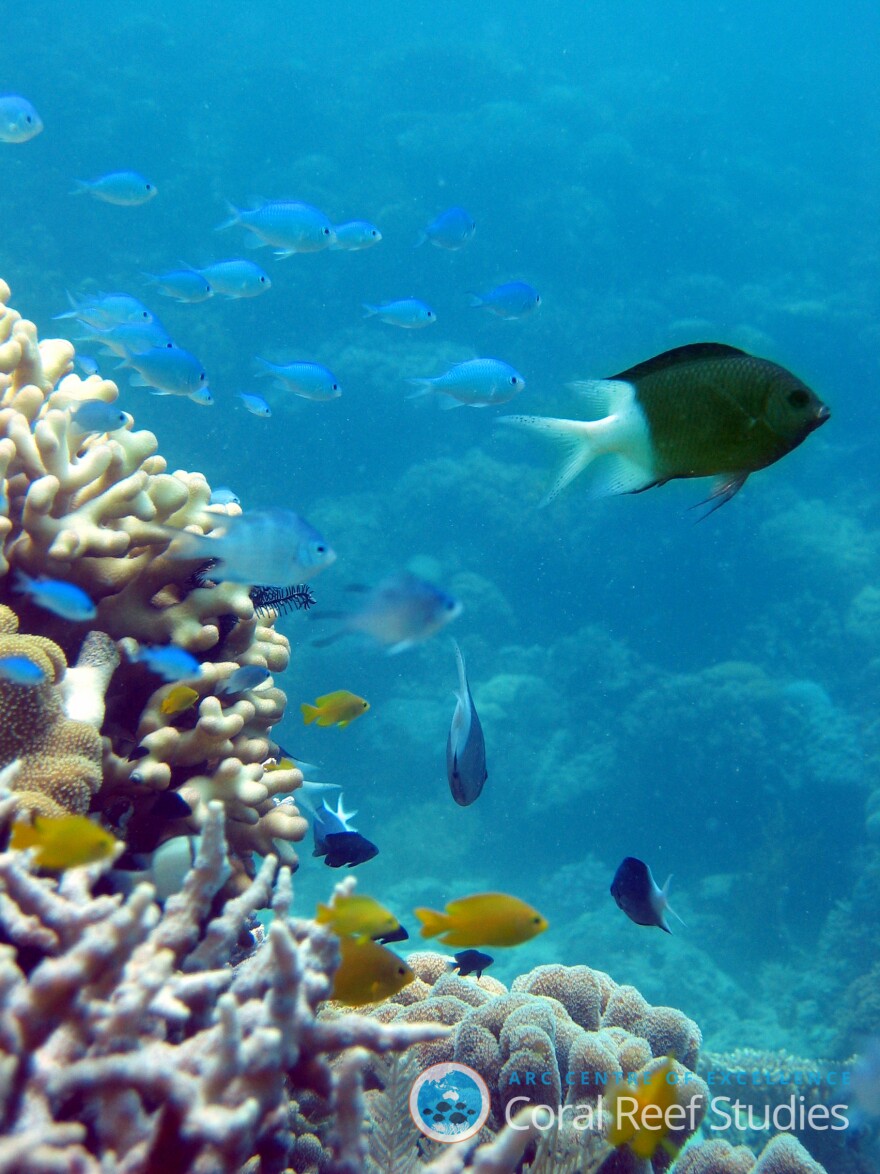At a time when the Great Barrier Reef and other coral reefs are facing unprecedented destruction, researchers in Australia have found a small ray of hope for the fish that make the reefs their home.
Fish are more resilient to the effects of ocean acidification than scientists had previously thought, according to research published Thursday in Scientific Reports.
Increasing carbon dioxide in the atmosphere, caused by burning fossil fuels, is being absorbed by oceans and causing them to become more acidic. That dissolved carbon dioxide can cause erratic, risky behavior in fish that could impact their survival.
For example, previous research demonstrates that exposing fish to high levels of carbon dioxide dulls their responses to predators, making them more likely to become a meal. Exposure can also make fish favor just one of their sides while moving, or make them more active and bold.
Those findings raised fears about the sustainability of coral reef fish populations as the dissolved carbon dioxide level increases. Past studies have primarily used stable rates of carbon dioxide, based on projections from the open oceans.
However, open oceans have different chemical patterns than coral reefs.
Researchers in Australia mimicked the daily changes of carbon dioxide levels in coral reef environments to see how the fish respond — and they found that the fish could withstand periods with significantly higher levels of acidification without causing behavior abnormalities.

"Shallow water habitats where reef fish live can experience substantial natural fluctuations in water chemistry throughout the day," Philip Munday, of the ARC Centre of Excellence for Coral Reef Studies at James Cook University, said in a statement. "For example, carbon dioxide levels on coral reefs are often much lower during the day than they are at night."
Those periods of lower carbon dioxide levels "are enough to provide fish with a recovery period, reducing their sensitivity to higher carbon dioxide levels," James Cook University's Michael Jarrold said.
The experiments tested the impact of fluctuating carbon dioxide levels on clownfish and juvenile damselfish. They found that the fish's erratic behavior was mitigated – in experiments that varied both the size of the carbon dioxide fluctuations and the mean concentration of the acid.
Other studies found that in a stable environment, the behavior of fish would begin to change at carbon dioxide levels between 600 and 700 μatm, or microatmospheres. These researchers found that fish raised in stable carbon dioxide levels of 750 μatm showed strange behavior – but those raised at 750 μatm with fluctuations of 300 μatm above or below that did not.
However, this research suggests there are limits to the resilience of reef fish. In another experiment, they found that at 1000 μatm, even fish treated with fluctuations showed signs of behavior abnormalities.
Therefore, ocean levels of 1000 μatm "will need to be reached before behavioural abnormalities could manifest in natural populations of reef fish," the paper states.
"We are thrilled about what we've found," Jarrold added. "Our results provide a greater level of optimism for reef fish populations in the future."
It's worth noting that ocean acidification is far from the only concern for coral reef fish. Due to rising ocean temperatures caused by global warming, severe bleaching events have hit coral reefs globally. As we have reported, the habitat of these fish "can recover if the ocean temperature returns to normal, but prolonged stress may cause the corals to eventually die."
Copyright 2020 NPR. To see more, visit https://www.npr.org. 9(MDAyNDY5MjM1MDEyODE2MzMyMTZmZDQwMg001))






